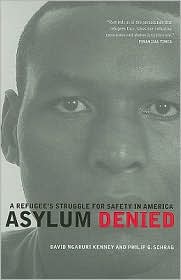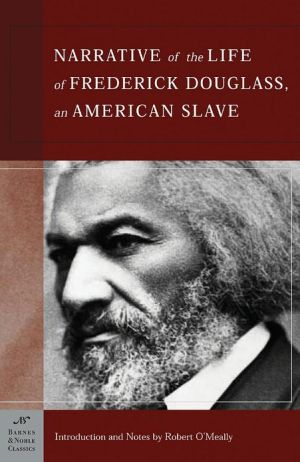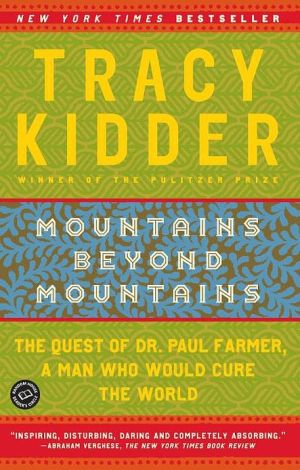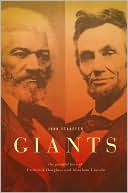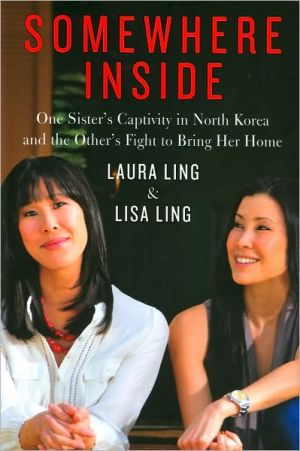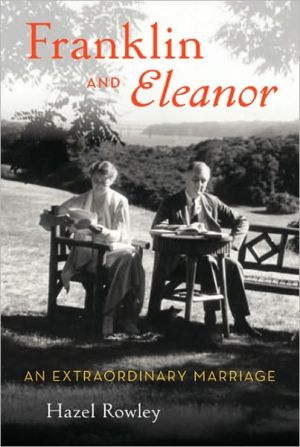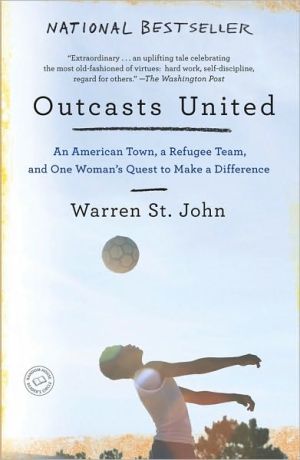Asylum Denied: A Refugee's Struggle for Safety in America
Asylum Denied is the gripping story of political refugee David Ngaruri Kenney's harrowing odyssey through the world of immigration processing in the United States. Kenney, while living in his native Kenya, led a boycott to protest his government's treatment of his fellow farmers. He was subsequently arrested and taken into the forest to be executed. This book, told by Kenney and his lawyer Philip G. Schrag from Kenney's own perspective, tells of his near-murder, imprisonment, and torture in...
Search in google:
"Asylum Denied is riveting and essential reading for anyone interested in the lives and struggles of immigrants. Kenney's story will astonish, frustrate, and inspire you."—Dave Eggers, author of What is the What"This is a fabulous book-a love story, a law story, a struggle against death, a battle for justice, and much more. I urge you to read it."—Bruce Ackerman, Yale University"Asylum Denied is at once a page-turner, a penetrating critique of the U.S. asylum system, and an exquisite exploration of humanity and politics, of emotion and law, of tension and release. It has the same narrative power that distinguished Jonathan Harr's A Civil Action."—Hiroshi Motomura, University of North Carolina"A stirring account of one man's struggle for justice—first with a brutal Kenyan regime bent on political persecution, and then with an American immigration bureaucracy callously indifferent to a compelling case for asylum. This riveting story gives the lie to the symbolism of the Statue of Liberty, and calls on all of us to restore the vision of justice and inclusion that it once represented." —David Cole, author of Enemy Aliens: Double Standards and Constitutional Freedom in the War on Terrorism"In Asylum Denied, David Kenney and Philip Schrag bring us a deeper understanding of the vagaries of our asylum process by telling David's riveting story. What society wouldn't be enriched by such stoic, courageous and principled strivers as Kenney? The more we learn of the lives and yearnings of such people, the closer we will be to an asylum process worthy of our values."—Senator Patrick Leahy, Chairman, Senate Judiciary Committee"From the horror of political persecution half a world away to the death of a thousand bureaucratic cuts here at home, Asylum Denied is a riveting microcosm of a story that has touched—and scarred—countless victims of mankind's cruelty. And for sheer perseverance under impossible circumstances, Sisyphus could take a lesson from this tale."—Jeff Greenfield, Senior Political Correspondent, CBS Evening News"This is a powerful story, human and legal. It is as tense as a fictional thriller, but it really happened. The hero battles official torturers in Kenya, then American bureaucrats out of the pages of Kafka." —Anthony Lewis, author of Gideon's Trumpet"Asylum Denied takes the reader from the dungeons of the Kenyan torture chambers to the labyrinth of U.S. immigration system. It is both a thriller and an educational journey. It leaves you wanting to meet David Ngaruri Kenney, an extraordinary person who ran the immigration gauntlet, learned its secrets, and survived his ordeal."—Richard Boswell, University of California Hastings College of the Law"This chilling true tale is not only a poignant story about the heroism of an extraordinary Kenyan dissident, but also an exposé of the apathy, incompetence, and occasional outright cruelty that slither away in the darker corners of the immigration bureaucracy. As you read this chilling true tale, you will share the authors' anger, stress, sadness, and unbearable frustration—but be prepared for some surprises."—Stephen H. Legomsky, Washington University School of Law"Asylum Denied is several things in one enthralling whole: a vivid and moving story of persecution and resilience in East Africa, an infuriating and inspiring story of administrative malfeasance and lawyerly devotion in the U. S., as well as a love story and a reasoned proposal for reform. If there is any justice, the asylum system will be reformed and this wonderful book will be read by everyone who cares about what America is becoming."—Todd Gitlin, Columbia University Publishers Weekly Astonishing in its power to move and inform, this fluent first-person narrative, a collaboration between a young Kenyan political refugee, Kenney, and his stalwart American attorney, Schrag, depicts the flaws and corruption at the heart of the U.S. asylum process. Kenney fled Kenya in 1995 after being arrested and nearly executed for leading a peaceful protest against the government's treatment of his fellow tea farmers; he survived torture and escaped to America where he was plunged into an incomprehensible and hostile immigration system. Kenney and Schrag's dealings with the Department of Homeland Security and federal immigration courts reveal a system that is "disquietingly random." Applicants are victims of "refugee roulette," their fates largely dependent on the sympathies of the government officials who hear their cases. Schrag's recommendations to make the system more consistent and compassionate give the book-and Kenney's heartbreaking story-an added sense of purpose and real practical potential. Kenya's recent political implosion lends this book added topical relevance, but its core concerns for justice and reform remain directed at American society, especially (though not only) its byzantine asylum system. (May)Copyright © Reed Business Information, a division of Reed Elsevier Inc. All rights reserved.
Asylum Denied \ A Refugee's Struggle for Safety in America \ \ By David Ngaruri Kenney Philip G. Schrag \ UNIVERSITY OF CALIFORNIA PRESS \ Copyright © 2008 The Regents of the University of California\ All right reserved.\ ISBN: 978-0-520-25510-4 \ \ \ \ \ Chapter One \ The Farmers' Boycott \ After the security officers decided not to shoot me during the night in the forest, they blindfolded me again and forced me back into the van. Terrified, I lost track of time. Finally, the van stopped, and they told me to get out. The officers took me to a building and led me through it. They removed the handcuffs from my wrists and the blindfold from my face. As my eyes adjusted slowly to the light from the only bulb, I could see that I was in some kind of prison. Heavy wire links covered the window.\ They ordered me to remove all my clothing. When I was naked, they pushed me through a doorway, and I fell into what seemed to be a dark room. Soon I realized that it was a small cement cell below the level of the prison floor: in essence, a pit. This was the beginning of the worst ordeal of my life.\ I landed in cold water that rose up to my ankles. The lights went out immediately. There were no windows in the pit. I was very cold and in total darkness. I was completely disoriented and more frightened than I had ever been.\ I ran my hands along the walls and felt the corners where they met. I stretched both my arms and touched the walls on each side simultaneously. I was in some kind of small tank or box. I heard the officers' footsteps receding as they walked away, somewhere above me, until I could no longer hear any sounds at all.\ Then the water level started to rise. It came up to my knees, my waist, and then my chest. I thought that my jailers were going to drown me, because the walls reached above my head. I had no way to climb higher to escape the rising water.\ After a while, the water receded, back to ankle level. This became the pattern for days: at apparently random intervals, the cold water would rise and fall. When it was high, I had to stand to avoid drowning. When it was low, I tried to curl up and rest on the wet floor. The cell was not wide enough for me to lie down without twisting myself around. I could not sleep for more than minutes at a time, because I was afraid that the water would rise and drown me while I was asleep.\ The cell was entirely without light. I never had any food. There were no toilet facilities. To stay alive, I had to drink the water on the floor into which I had urinated and defecated. I could estimate how long I had been in that cell by feeling the length of my growing whiskers and by comparing how hungry I became with how hungry I had been a few years earlier when my brothers had forced me to live as a homeless person on the streets of my village. By those measures, I remained in the water cell for about a week.\ Eventually, I had the experience of leaving my body. My mind seemed to separate from my physical being. I could see my body lying naked on the floor, as if I were floating above it. In my mind, I had long conversations with my dead father. Once, I walked over to my body on the floor and kicked it. I saw my own death, and I attended my funeral. I was only about twenty years old, but my life seemed to have ended.\ * * *\ The government of Kenya consigned me to the water torture cell because I had led a protest on behalf of the tea farmers in my region. A few years before the protest, I had become a tea farmer in the hope of eking out a meager living on a small parcel of land that the British government of Kenya had given to my father, Ngaruri (pronounced "ga-roo'-ree") Muchiri.\ My father was a Kikuyu, a member of one of the largest tribes in Kenya. He was born during the period of British occupation (Kenya had been occupied since 1895, first as a British protectorate and then as a crown colony). The colonizers imposed a system of government very similar to one against which Kikuyus had revolted centuries earlier. The British forcefully removed people from their ancestral lands, appointed village chiefs from different tribes, and granted them unlimited powers over villages. Village chiefs answered only to senior district commissioners, who reported to the provincial commissioner, who reported to the colonial governor. As a result, many village chiefs became petty dictators in their respective villages because their word was law. In what became known as the Mau Mau rebellion, Kikuyus resisted this despotism. This rebellion in the 1950s contributed significantly to the success of the independence movement in 1963. Ironically, the new African government, dominated by Kikuyus, adopted the autocratic system that the British had imposed. It used the regional administrators to suppress all forms of dissent in many rural communities.\ In one attempt to stop the Mau Mau rebellion, the British had passed a land reform act in 1956. They took farmland from some Kikuyus and redistributed it to other Kikuyus who did not support the rebellion. The British also allocated five acres of mountainous land, suitable for growing tea, to each loyal farmer who would agree to grow tea for British companies. They hoped to bring enough prosperity to these farmers that future rebellions would be less tempting. Undoubtedly, the colonial government also saw in this arrangement some advantages for the British companies that would process and ship the tea as well as for British consumers.\ My father spent his early years working for the British settlers. From that experience, he understood British thinking and found covert ways to use the colonial administrative system to protect the interests of his Kikuyu friends and relatives. The British later appointed him a civil administrator. He remained loyal to them, was elected as a young regional tribal chief, and never joined the Mau Maus. When the land reform act was passed, he encouraged other landless Kikuyu farmers to migrate to his region; and he helped them get land grants, including the additional five acres of tea-farming land. When enough farmers had congregated in the area, he founded the village of Kangaita. Later, my father ceased being a regional civil administrator, but because of his work in building Kangaita and helping other homeless Kikuyu families to regain farmland, the village people elected him the munene, the head of the council of elders of Kangaita.\ Kangaita lies in the southern foothills of Mount Kenya. Snow-capped twin mountain peaks rise behind the forest where the village ends. By the time I was born, about 120 people lived in the village. As a little child, I imagined that the mountain was a fixed cloud that never cleared from the sky. Later on, my father told me it was the mountain of God, and I grew up believing that God lived there. On the southern side of the village, fields of tea plantations sprawled across the hills in a beautiful landscape as far as the eye could see. When I was a child, I loved to stand in the village square at the beginning of the long rainy season and watch amazing storms approach and dissipate over the hills before reaching our village. I used to think that we were the most blessed people in the world because we lived closer to God and could watch the rain fall from the sky.\ My father had been married once before but was separated from his first wife before he married my mother, Maria. When my mother was a child, her father had beaten her mother to death. He remarried, and there was ceaseless friction between my mother and her new stepmother. When my mother was fifteen years old, my father appeared on the scene, and my maternal grandfather gave my mother to him as a ward, assigning her to cook and clean for my father. Though they later married, I think that they never loved each other.\ Before I was born, my mother had four children who survived infancy. According to my uncle, she also gave birth to three children who died in infancy or at very young ages, at least two of whom may have perished through her neglect. All of my surviving older siblings were products of affairs that she had with men other than my father. I was the first of three children that she had with my father.\ Today, I am seven feet tall, unlike typical Kikuyus, who are shorter than five feet, ten inches. But I was so small at my premature birth that everybody, including my mother, expected that I would soon die. I believe that I was born in the early 1970s, but I don't know exactly how old I am. While my father was away, my mother went into labor and gave birth to me while she was collecting wood alone in the forest. Later, my father inscribed the date of my entry into this world in a small notebook in which he recorded village events. But he wrote down only the month and day, not the year.\ My parents named me Wachira Ngaruri, and I was christened David Wachira Ngaruri. Wachira means "junior judge" or "people's representative." My father's sister Keru later told me that I was named Wachira because my mother had a dream when I was a few days old. In the dream, my great-uncle, who was a muchiri, or judge, appeared in his traditional judicial regalia. He wore a leopard skin and a headdress made of colobus monkey skin. His wrists, ankles, and neck were covered with colorful, bright cowry shell beads and braces, and he held a fly whisk and a walking stick. He told her that I would not die because I would be named after him and would become a judge. The next morning, frightened by the dream, my mother insisted on naming me Wachira, and I did not die.\ There was a big age difference between me and my older brothers and sister. I grew up knowing the sheep and cows on our farm better than I knew these siblings. I didn't know then that we were only half-siblings. Even so, I didn't feel like their brother. They considered me a different generation, and, in Kikuyu tribal tradition, different generations don't customarily play or work with one another. Interaction is usually limited to "age mates," generations of male and female children, usually with a spread of at most five years, who have circumcision ceremonies at the same time. The oldest of my three half-brothers, Njogu, was about eighteen years older than I was. Mbacha was about fourteen when I was born, and Mugo was about eleven. Even my sister, Wangithi, was about ten years older than I was. To me, they were distant relatives.\ Njogu and Mugo had violent temperaments. I don't recall ever playing with them. I remember only the beatings they gave me. My sister beat me too. Nobody tried to discipline her because she was the only girl in the family. My middle brother, Mbacha, wouldn't beat me, but he encouraged other children to beat me or told them that he would keep Mugo and Njogu from beating them if they attacked me instead. The sweetest moments in my childhood were those in which I played alone in the forest, safely hidden from these siblings and my mother.\ During my earliest years, I loved to sing. I could make a song out of anything. In the evenings, my brothers and I would bring the animals from the forest to the farm, and while my father tended to them, my mother would cook and tell stories. We children would sit around the fire, and each of us would talk about our day. One evening, when I was singing about my day, Njogu smashed me in the face, saying that I made too much noise. My mother told me that I could keep Njogu from punching me if I stopped singing. I never sang again.\ Every Easter, a motor rally drove through our village. During one of these rallies, a car broke down outside the village, and a helicopter landed to bring a replacement part. I had never seen or heard of a helicopter before. I was intrigued and amazed by the craft's ability to hover in the air above me like a bird. As it prepared to land, I felt the wind of its rotors and saw men with white skin come out of the helicopter. I had heard about white men, but this was the first time I had ever seen one close up. By the time the helicopter left, I had sketched a picture of it. I later built a detailed wooden model of the helicopter, even putting rotors on it. But my brothers found it and destroyed it before I could figure out how to make the rotors go around. From then on, I learned to hide my toys and my things in a clearing in the forest that my brothers did not know about. I also built a secret swimming pool in the forest, where I would play alone.\ Once, when my family was growing tea bushes, I dreamed that we were all working on the farm, harvesting tea leaves with tea baskets on our backs. We were competing to see who could harvest the most tea leaves. Something caused my brothers to put all their tea leaves in my basket, so I won the competition. When we all were in the kitchen in my mother's hut, I told my family about my dream. Mugo dragged me outside and punched me repeatedly in the face. I ran back into the hut, blood gushing from my nose and mouth. My sister laughed, and my mother told me to shut up and stop crying. My father took me back to his hut and cleaned me up. He warned me that I should not tell my brothers about dreams like that, and he told me that they beat me up because they were afraid of me. He said that even though I had been born so small, I was growing very rapidly and would be bigger than they were. At that time, I wanted him to do something to make my brothers and sister stop hitting me; his words did not comfort me. But he taught me that although my brothers had to resort to physical force to get what they wanted, there were other ways to achieve my goals.\ Our village consisted of traditional Kikuyu-style round huts, composed of mixtures of mud, nappier grass, cow dung, and white ash. The roofs were made of elephant grass tied from a central pole. Each hut had a fireplace in the middle. My mother and father lived in separate huts. Eventually I stopped sleeping in my mother's hut and moved to my father's residence, which was also the meeting place for the village council. His floor was covered with buffalo and goat skins. My first duty of the day was to start the fire in his hut so that the big pot of beer would brew throughout the day. Later in the morning, all the elders would sit around the fire, drink beer, and talk about everything that happened in the village, from who went to the bathroom that morning, and at what time, to whose cow had been left in the forest and who had gone looking for it. During these discussions, I would get beer or water or whatever one of the elders requested. I learned a lot by listening to the elders and helping to carry out their decisions.\ For example, just outside the village was a pasture where, for most of the year, villagers were not allowed to graze their animals. It was a protected reserve, and it was opened for grazing animals only once a year, during the dry season. Whenever it opened, every family would take its animals into the pasture; and within days, there would be nothing left. Then everyone would start searching for any available grazing land, and those who owned large pastures made fortunes by leasing them to other farmers. My father and the village council discussed this problem for days. After three days of heated debate, they resolved to expand the size of the reserve, to divide it into five plots, and to allow only a certain number of animals to graze in each plot. To ensure that those resolutions were carried out, I was instructed to find a surveyor and a handyman to build the fence and to negotiate their terms of payment.\ Every week, my father and I made the long walk across the hills to the district headquarters to meet with the regional council chief, Wamuri. He occupied a small stone office just outside the district market square. He was a decent man. Whenever we met him, he took us to a very nice restaurant and bought me sweet tea and fried sugar donuts. I was very comfortable with Wamuri, and I asked a lot of questions that I normally wouldn't have asked my father. Sometimes my father later cautioned me, saying, "Be careful about the way you question authority. The biggest tree in the forest is the first one to be cut down. You are a big tree, and if you don't learn how to interact respectfully with authority, you will be the first one to be cut down." Perhaps I did not learn this lesson well enough.\ (Continues...)\ \ \ \ \ Excerpted from Asylum Denied by David Ngaruri Kenney Philip G. Schrag Copyright © 2008 by The Regents of the University of California. Excerpted by permission.\ All rights reserved. No part of this excerpt may be reproduced or reprinted without permission in writing from the publisher.\ Excerpts are provided by Dial-A-Book Inc. solely for the personal use of visitors to this web site. \ \
Introduction Philip G. Schrag 11 The Farmers' Boycott 92 Basketball 413 Temporary Safety 684 Bernie and Dave 955 My Day in Court 1256 Winning the Lottery 1727 The Fourth Circuit 1998 A Cold Day in Richmond 2369 Exiled 25510 The Witch Arrives 274The Lawyer's Epilogue 303The Client's Epilogue 325Acknowledgments 329Notes 331Index 347
\ Publishers WeeklyAstonishing in its power to move and inform, this fluent first-person narrative, a collaboration between a young Kenyan political refugee, Kenney, and his stalwart American attorney, Schrag, depicts the flaws and corruption at the heart of the U.S. asylum process. Kenney fled Kenya in 1995 after being arrested and nearly executed for leading a peaceful protest against the government's treatment of his fellow tea farmers; he survived torture and escaped to America where he was plunged into an incomprehensible and hostile immigration system. Kenney and Schrag's dealings with the Department of Homeland Security and federal immigration courts reveal a system that is "disquietingly random." Applicants are victims of "refugee roulette," their fates largely dependent on the sympathies of the government officials who hear their cases. Schrag's recommendations to make the system more consistent and compassionate give the book-and Kenney's heartbreaking story-an added sense of purpose and real practical potential. Kenya's recent political implosion lends this book added topical relevance, but its core concerns for justice and reform remain directed at American society, especially (though not only) its byzantine asylum system. (May)\ Copyright © Reed Business Information, a division of Reed Elsevier Inc. All rights reserved.\ \ \ \ \ Kirkus ReviewsA dismaying account of bureaucracy at its red-tape-bound worst. Kenney, who was imprisoned and tortured for leading a tea farmer's protest in Kenya, was fortunate to be befriended by generous Peace Corps workers, who helped get him out of Kenya and to the United States on a basketball scholarship in 1995. He was also fortunate to meet Schrag, who heads Georgetown University's Center for Applied Legal Studies, an organization that helps asylum seekers. Schrag provides an introduction that explains how the co-authors worked together to present the story from Kenney's point of view. Kenney accumulated mountains of paperwork and endured countless frustrations as he worked his way through a labyrinth of federal courts and other government agencies, struggling to comply with complex rules and regulations while pleading his case before seemingly arbitrary, sometimes openly hostile officials. Facing deportation in 2004, he left for Africa, where he was captured and nearly killed by rebel forces in Tanzania. Bribery was a standard part of nearly every transaction, but after extraordinary difficulties with an epithet-spouting official at the U.S. consulate, he succeeded in getting an immigrant visa and returned to his pregnant wife in America. The authors make clear that the odds are against asylum seekers, especially since 9/11. Each has his own epilogue: Kenney's is deeply personal, Schrag's is a lawyerly analysis of what's wrong with the way the United States treats immigrants and how the system could be improved. Wrenching human drama, bogged down in a plethora of details that often make for tedious reading.\ \
